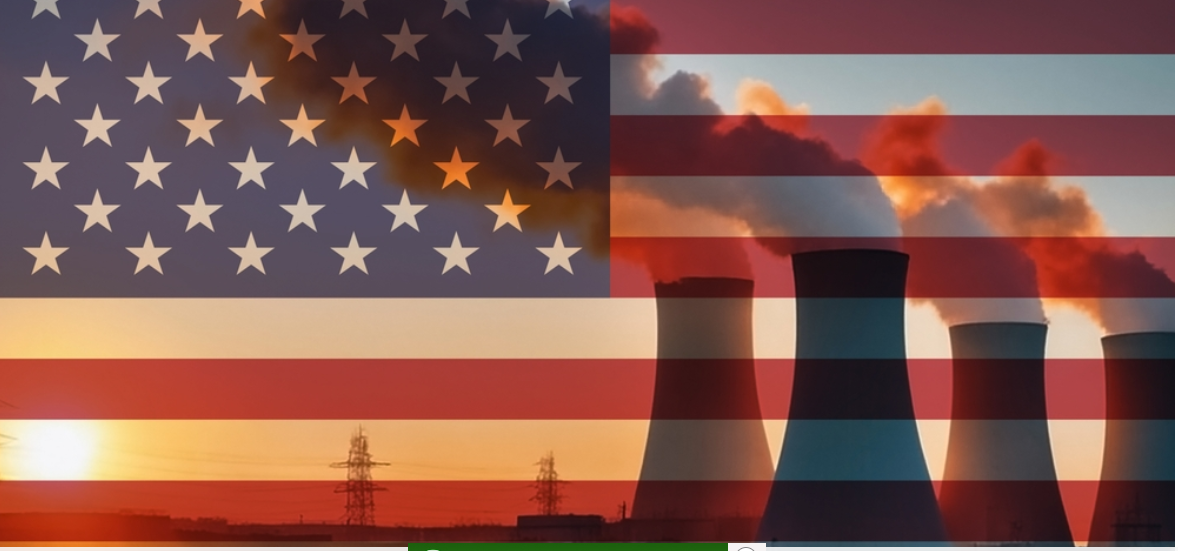The Race for Nuclear Energy Dominance—and How America Can Win

To maintain America’s nuclear energy leadership and compete with Russia and China, urgent action, global partnerships, and policy reforms are needed.
Having started my career in the energy field more than 35 years ago, it’s rewarding to see nuclear energy finally being recognized—on both sides of the political aisle—as key to a resilient, reliable, affordable, and increasingly clean energy system. The magnitude of the demand we’re seeing for new nuclear energy systems, both in the United States and around the world, far outpaces projections from as recently as a few years ago. There are many reasons for this growth in demand, but regardless of the demand drivers, the energy system of the future is being shaped now, and the decisions we make today will have a major influence over the role the United States plays in the global nuclear energy marketplace for decades.

Why US Leadership in Nuclear Energy Matters
You may wonder why this matters. After all, the United States has the largest, safest, and most efficient nuclear power reactor fleet, the Nuclear Regulatory Commission (NRC) is viewed as the global standard for safety regulation, and America’s nuclear energy educators and innovators are second to none. As a result, America’s nuclear energy sector makes important contributions to US national security and geopolitical and geoeconomic influence, as well as being an important provider of reliable, secure, firm electricity.
Unfortunately, America’s position in the global nuclear sector is in many ways a legacy of the early decades of the industry, when America was the global supplier of choice outside of the former Soviet Union. Yes, American companies are still leading the world in technological designs for the next generation of reactors, but we aren’t building nearly enough of these reactors to maintain our position as a leader in the global nuclear energy sector. China and Russia are taking advantage of our inactivity to strengthen their geopolitical leverage by aggressively promoting and financing nuclear technology export sales from their state-owned companies.
The Need for Urgent Action
To seize this moment, the US government, private sector, and industry all need to work together to compete globally, and we need to do so quickly. If we don’t begin building significant numbers of new reactors, and soon, we may fall irretrievably behind the competition. And the best way to begin building new nuclear plants in large numbers is to partner with our longstanding allies in the nuclear energy sector, leveraging their workforce expertise and supply chains to complement US capabilities and advance shared strategic interests.
This opportunity was highlighted recently by the Working Group on US Nuclear Energy Dominance. I had the pleasure of serving on the working group alongside more than a dozen recognized nuclear energy and international trade experts. The working group recently released a report that affirms that a strong domestic nuclear program supports America’s vital national security interests as well as extremely important strategic, technological, and economic interests globally.
Among its many timely recommendations, the report calls for the US government to “strengthen supply chain cooperation with firms in allied countries, especially with respect to components that [a] supply chain review classifies as medium- or long-term prospects for domestic manufacturing.” By partnering with nations like Japan and South Korea to build new nuclear reactors in the United States today, we can both accelerate project delivery domestically and be better positioned to work together to build new reactors in those countries and around the world.
Early Steps Toward Cooperation
The Trump administration has already set the stage for this sort of cooperation. By securing pledges of direct foreign investment from Japan, South Korea, and others, those nations will be motivated to identify strategic sectors for cooperation that can draw on world-class capabilities they already possess. The civil nuclear energy sector is in many ways an ideal candidate for such cooperation.
The working group report also highlights the opportunity for Congress to establish a short-term customer protection policy to ensure against the cost and schedule risks inherent in the first few deployments of any new, large technology project. Government encouragement of this sort is best applied to sectors that are primed for growth but need a limited but impactful accelerant.
As is well known to people in the energy sector, the private sector in the United States is already preparing to deploy nuclear energy and sending a clear signal to the marketplace. As just one example, nuclear partnerships with tech customers total more than 30 gigawatts of commitments across the United States, and the numbers keep growing. Companies like Google, Meta, and Amazon have joined 14 of the world’s biggest banks and financial institutions to pledge to triple global nuclear capacity by 2050. In 2024 alone, the private sector transaction value in nuclear power was more than the prior four years combined. Now, on the heels of the series of sweeping, historic executive orders from the administration aimed at revitalizing the US nuclear energy industry and accelerating its growth, Congress has a chance to double down through federal policy action. During the last Congress, Senator Jim Risch (R-ID) offered the Accelerating Reliable Capacity Act, which would provide just the sort of federal stimulus needed to unlock a new wave of domestic nuclear plant construction.
The working group report also calls for a comprehensive plan of action that includes making nuclear energy dominance a national priority; promoting America’s nuclear energy exports; strengthening America’s nuclear fuel cycle; rebuilding America’s nuclear energy manufacturing and supply chain; reforming the Nuclear Regulatory Commission; and creating and maintaining America’s nuclear energy workforce.
Through effective policymaking, accelerating the domestic deployments of innovative advanced nuclear technologies will not only pay dividends at home but will also bolster US international competitiveness at this crucial juncture.
Seizing the Global Market Opportunity
With a strong domestic nuclear industry as the foundation, the global opportunity for US nuclear exports is significant. More than 30 countries are exploring nuclear energy for the first time, and over 30 others are seeking to triple their existing nuclear capacity. The deployment of American nuclear technologies abroad is a powerful instrument of US foreign policy and global energy leadership.
The administration’s recent successes in securing a formal end to the World Bank’s ban on financing nuclear energy projects, as well as a public commitment from the Asian Development Bank to revisit its ban, have created a critical opportunity for these and other multilateral development banks to mobilize capital, de-risk investment, and expand access to American nuclear technologies.
The administration and Congress can take further action to significantly increase the competitiveness of its financing options. Actions like maximizing the competitiveness of the Export-Import Bank; unlocking financing from the US International Development Finance Corporation for grid-scale nuclear power projects; boosting the capabilities of the US Trade And Development Agency to open the door for export sales in key nuclear markets, and develop robust interagency nuclear financing capabilities to meet rising demand for US nuclear technologies, can better level the playing field so that foreign government-backed financing doesn’t put innovative American nuclear energy technologies at a disadvantage.
By strategically shaping multilateral financial flows, the United States can expand access to civil nuclear technologies and enable competitive deployment of US reactor designs and fuel services.
The Stakes for American Leadership
We are at a crucial inflection point in our race to a secure, reliable, clean energy grid of the future. The signs are all there, but we must act now if we are serious about achieving energy and national security for the United States and its allies.
To increase America’s national security and global competitiveness, we need to work with our longstanding partners and allies to increase nuclear energy development, first here and then across the globe. If we turn our backs on nuclear, we risk missing a generational opportunity to forge key global partnerships that support American jobs and advance our national interest.
- Questions and Answers
- Opinion
- Motivational and Inspiring Story
- Technology
- Live and Let live
- Focus
- Geopolitics
- Military-Arms/Equipment
- Beveiliging
- Economy
- Beasts of Nations
- Machine Tools-The “Mother Industry”
- Art
- Causes
- Crafts
- Dance
- Drinks
- Film/Movie
- Fitness
- Food
- Spellen
- Gardening
- Health
- Home
- Literature
- Music
- Networking
- Other
- Party
- Religion
- Shopping
- Sports
- Theater
- Health and Wellness
- News
- Culture

